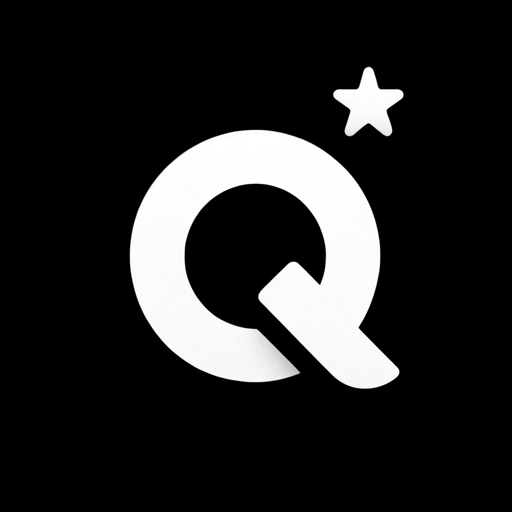TotalQuery-multi-engine search tool
AI-powered search for comprehensive results
Related Tools
Load More
Q*

GA4 SQL
Your assistant for writing Google Analytics 4 BigQuery SQL queries

Big Query SQL Copilot
Get precise and highly efficient GA4 BigQuery SQL queries with this assistant. Informed by the latest schema for BigQuery and Looker Studio insights, it will become your go-to tool for any query.

Q*
Developer Preview | v0.2.5

Big Query SQL Query Optimizer
Expert in brief, direct SQL queries for BigQuery, with casual professional tone.

Focus GPT
Answers questions about Focus
20.0 / 5 (200 votes)
Introduction to TotalQuery
TotalQuery is a specialized AI-powered tool designed to extend the capabilities of traditional search engines by integrating information from over 70 different sources. It is built on the ChatGPT architecture, which allows it to understand and respond to complex queries, summarize information, and provide detailed answers. TotalQuery's design purpose is to minimize bias and provide comprehensive, accurate, and up-to-date information. For example, in a scenario where a user is looking for the latest scientific research on climate change, TotalQuery can aggregate and summarize data from various scientific journals, news outlets, and databases, ensuring the user gets a well-rounded view.

Main Functions of TotalQuery
Comprehensive Search
Example
A researcher looking for information on recent advances in quantum computing.
Scenario
TotalQuery searches across multiple databases and academic journals, providing a summary of findings and links to full-text articles, enabling the researcher to access a wide range of sources without needing to search each individually.
Summarization
Example
A student needing a summary of a long technical document on renewable energy technologies.
Scenario
TotalQuery reads through the document, extracting key points and summarizing the content into a concise, readable format. This helps the student quickly grasp the main ideas without reading the entire document.
Image and Video Retrieval
Example
A marketer searching for royalty-free images and videos to use in a campaign.
Scenario
TotalQuery retrieves images and videos from sources like Unsplash and YouTube, providing descriptions and links. This helps the marketer find appropriate media assets quickly and ensures they are correctly licensed for use.
Ideal Users of TotalQuery Services
Researchers and Academics
These users benefit from TotalQuery's ability to aggregate and summarize information from multiple academic sources, saving time and ensuring they have access to the latest research across different fields.
Content Creators and Marketers
TotalQuery aids content creators and marketers by providing access to a wide range of media assets, as well as up-to-date information on trends and market research, which is crucial for developing effective content and strategies.

How to Use TotalQuery
1
Visit aichatonline.org for a free trial without login, also no need for ChatGPT Plus.
2
Familiarize yourself with the available search engines to select the most relevant ones for your query.
3
Enter your search query in the input box and choose the preferred search engines if needed.
4
Review the search results, which can include text, images, or videos. Summarize or extract necessary information.
5
Use provided links to access full articles, images, or videos for more in-depth information.
Try other advanced and practical GPTs
WhimsicalWordsmith
Transform Text with AI Whimsy

Human GPT Rewriter
AI-powered Human-like Text Rewriting

Genie - Your Excel Dashboard Pro
AI-powered Excel Dashboard Optimization

Análisis del Sistema Armonizado
AI-powered NCM Code Analysis

用户心理打标
AI-powered social psychology insights.

Camera Companion
AI-powered photography insights and tips

Safina - SAFe 6.0 Expert
AI-Powered SAFe 6.0 Expertise for Agile Success

MPI Mastermind
AI-Powered MPI Programming Assistance

Coding4YouLG
Your AI-powered coding companion

devin
Automate Your Coding with AI

asif-grok
AI-Powered Assistance for Every Need

AfroArt Architect
AI-powered art for authentic Afrocentric representation.
- Academic Research
- News Updates
- Image Search
- Video Search
- Comprehensive Search
TotalQuery Q&A
What is TotalQuery?
TotalQuery is a versatile search tool that aggregates results from over 70 different search engines to provide comprehensive, unbiased information.
How can I use TotalQuery for academic research?
You can use TotalQuery to find scholarly articles, research papers, and other academic resources by selecting relevant search engines like Google Scholar and arXiv.
Can I search for images and videos with TotalQuery?
Yes, TotalQuery supports image and video searches by leveraging engines like Google Images, Bing Images, YouTube, and Vimeo.
How does TotalQuery ensure unbiased search results?
By combining results from a wide range of search engines, TotalQuery minimizes the bias that may be present when using a single search engine.
Is there a way to get updates or latest information using TotalQuery?
Yes, you can specify the time range for your search to get the most recent information from engines like Google News, Bing News, and others.